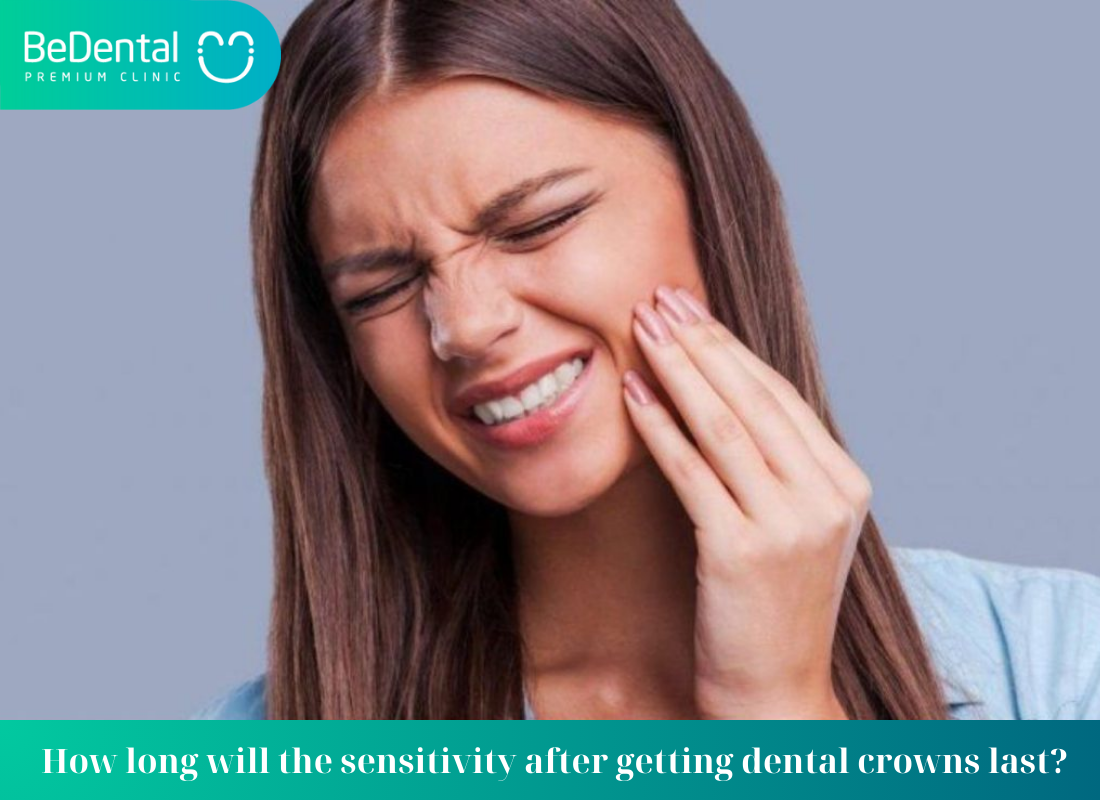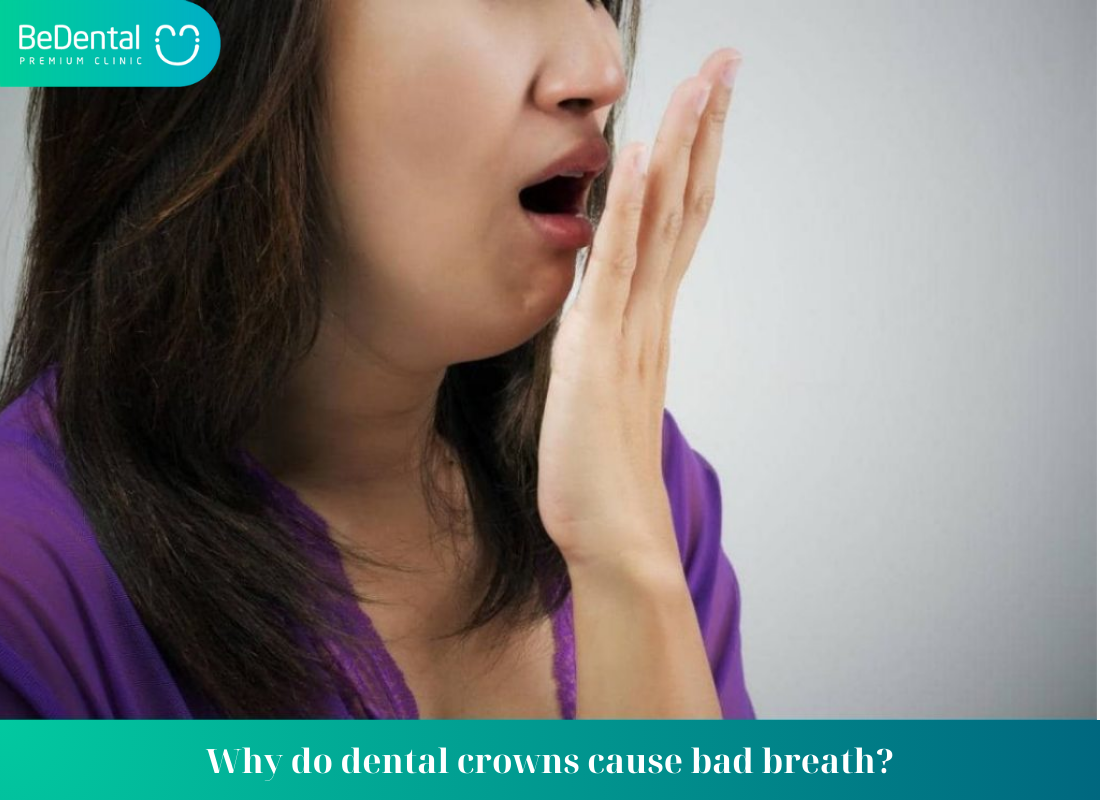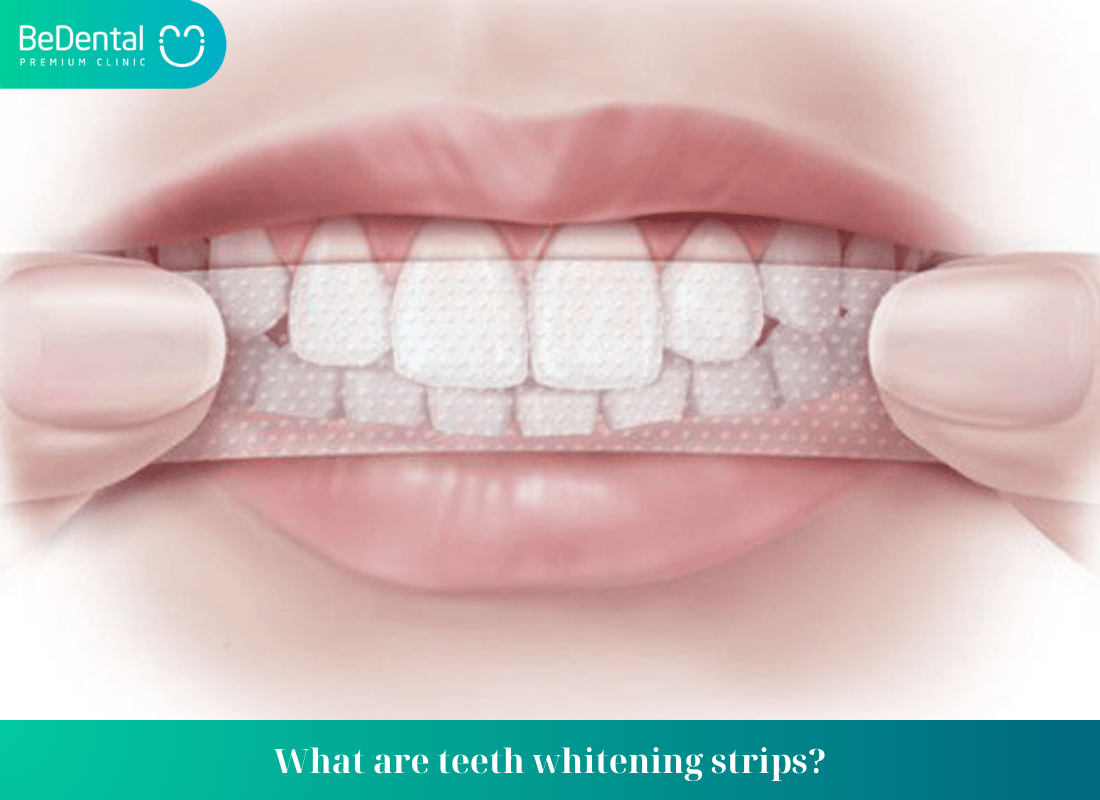Toothache, toothache can occur at any time during the day, even in the middle of the night. If the pain occurs frequently at night, it can affect sleep and oral health. Therefore, information on how to treat toothache at night is of great interest to many people.
People often experience a throbbing pain around the tooth accompanied by swelling, increased body temperature, headaches, and even discharge from the infected tooth. So, Is sudden toothache a serious issue? How to deal with sudden toothache?
What is sudden toothache?
What is sudden toothache? Sudden toothache is a sensation of pain in or around the tooth. The pain may originate from inside the tooth or in nearby areas including the gums, bone socket. Toothache can be persistent or intermittent.

Weather changes such as cold water showers increase pressure on the teeth when chewing, which can cause pain. In some situations, the pain will worsen even without any symptoms.
It’s hard to forget the feeling of toothache every time eating or working. Prolonged pain will urge us to seek something to alleviate the pain. Although extremely uncomfortable, the feeling of toothache is a warning sign that we need to visit the dentist before things get worse!
What harm can sudden toothache cause?
Toothache can bring much more serious consequences. Initially, the toothache will start from a mild level, but if the painful and throbbing tooth is not treated, it can become infected.
If the tooth is infected and not treated, the infection can spread to the inner parts of the tooth, affecting your life.
Will toothache go away on its own?
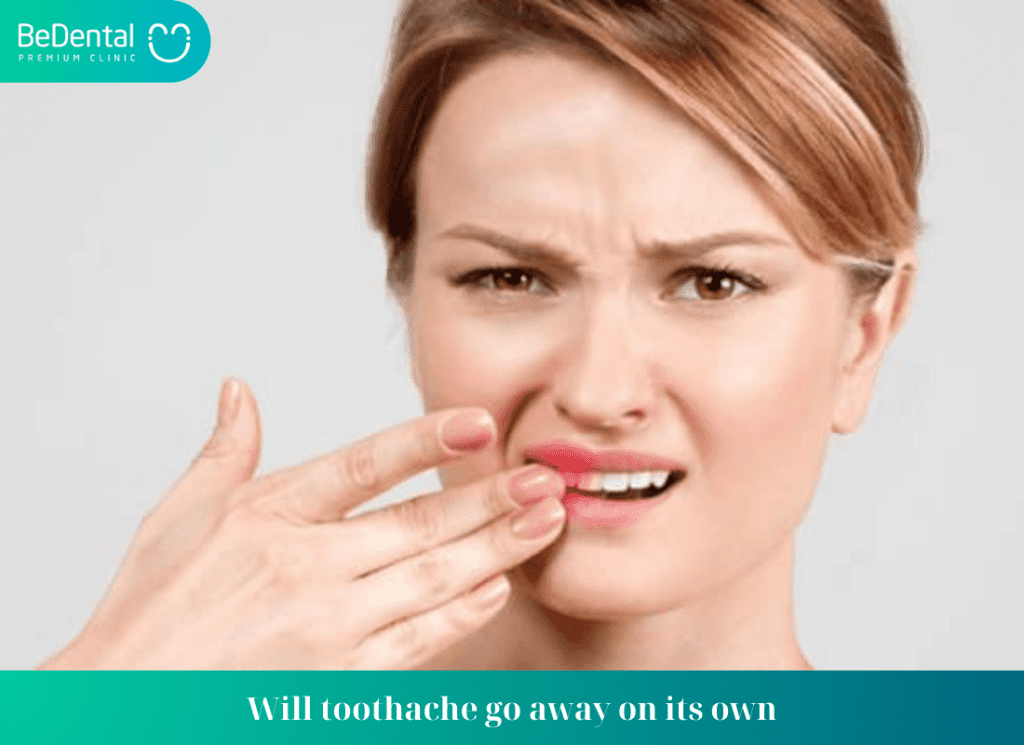
Some patients experience toothache in the surrounding area (rather than inside the tooth), so their teeth may gradually decrease without seeing a dentist.
Mild pain or irritation (redness) in the gums will improve in about 2-3 days. In the initial stage, try not to chew around the affected area. Eat soft foods, including yogurt and milk, and limit hot or cold drinks and foods if you have sensitive teeth.
See more: 10 benefits to help you answer the question : “Are porcelain veneers necessary?”
Causes of sudden toothache
Sudden exposure to hot or cold
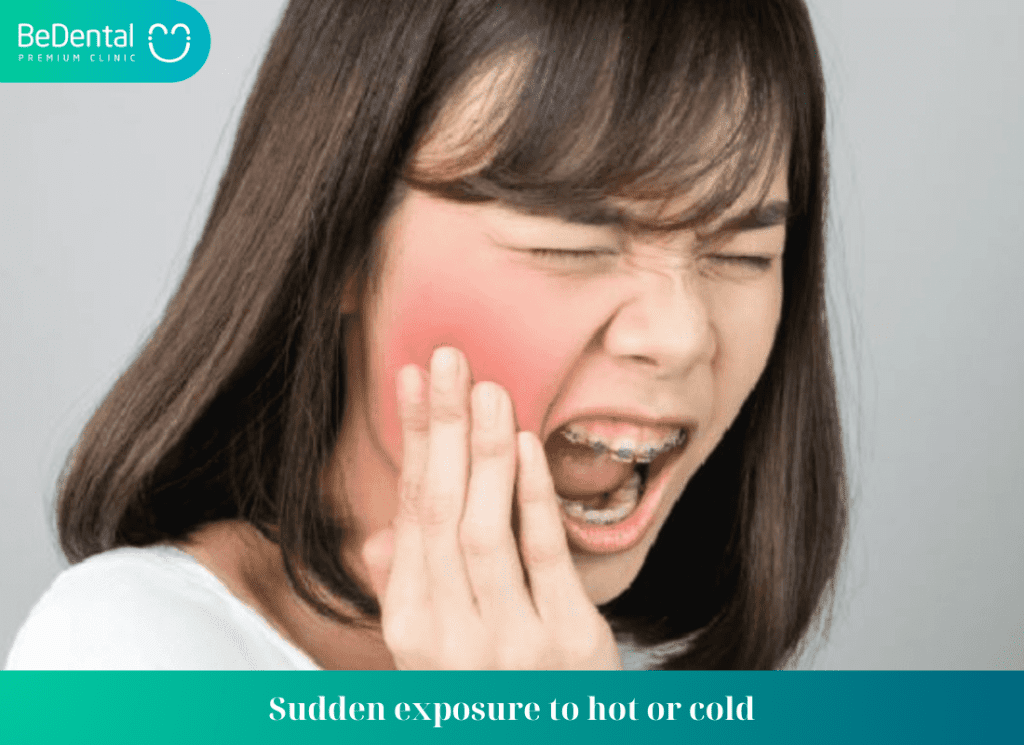
Sensitive teeth occur because the tooth enamel is worn down or the nerve endings inside the tooth are stimulated by temperature. When you chew or drink something hot or cold suddenly, you may feel a sudden toothache and sensitivity.
Gum recession
Gums are the pink tissue that covers the surface of the teeth and surrounds the tooth roots, helping to protect the nerve endings of the teeth. As you age, the gum tissue may wear away, causing gum recession.
Gum recession exposes the roots of your teeth, making you susceptible to gum inflammation or tooth infections. If your teeth become more sensitive than normal, gum recession may be a cause.
See more: Preventation of tooth decay in children
Enamel erosion
Around 12% of the world’s population has “hypersensitive enamel.” Similar to gum tissue, enamel (the outer layer of the tooth) wears away over time, sometimes accelerated by exposure to chemicals in food and oral hygiene products.
Once enamel is worn away, it does not regenerate. As a result, the ability to protect the enamel and tooth pulp diminishes, leading to sudden toothache causes.
People with enamel erosion may experience sharp, uncomfortable pains, making it painful to bite into certain foods. Erosion can lead to enamel decay, causing cavities and other serious oral problems.
Tooth decay
Tooth decay is also a common cause of sudden toothache. Decay can occur on the sides of the tooth or at the enamel surface without being noticed. When decay progresses to an infection, you may begin to feel pain.
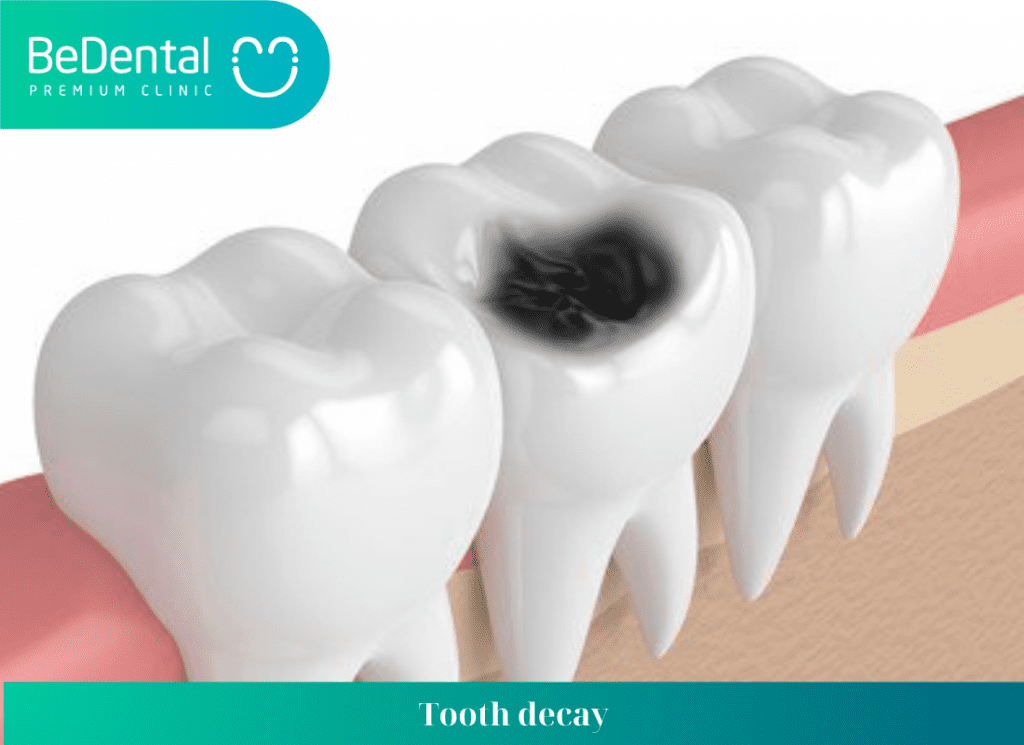
Cracked tooth
Of course, a cracked tooth is also one of the causes of sudden toothache. However, some people have fewer cracked teeth, so you may not notice the crack.
Sinusitis
One symptom of sinusitis is pain in between the teeth and jaw. When your sinuses are inflamed and filled with mucus, the fluid can put pressure on the nerve endings of the teeth, causing pain.
Dental interventions
Having a tooth extracted or filled can cause swelling in certain areas of the tooth and lead to congestion, resulting in tooth pain for a period of time.
See more: Early Detection of Periodontitis Through These Signs
Teeth whitening products
Using whitening products or undergoing teeth whitening procedures can increase tooth sensitivity. Tooth pain after whitening products is usually temporary and will decrease when you stop using these products.
Gum recession
Gums are the pink tissue that covers and surrounds the tooth roots. Gums protect the nerve endings of the teeth. Gum tissue wears away over time, causing gum recession as you age.
However, if you are young and experiencing tooth decay, it is a dental condition that should be treated early. When gum recession occurs, the tooth roots are exposed, leading to numbness, pain, and increased sensitivity, as well as potential bacterial infiltration causing diseases and infections.
If your teeth become more sensitive to food and experience sudden toothaches, check the condition of your gums. Gum recession is easily visible to the naked eye – teeth will appear more spaced out, and tooth roots will be more exposed.
Bruxism
Some people tend to grind their teeth when stressed or anxious. Changes in habits during different seasons, such as vacationing, increased physical activity, or imbalanced eating habits, can lead to bruxism. Grinding teeth can cause tooth pain, jaw pain, and gum pain.
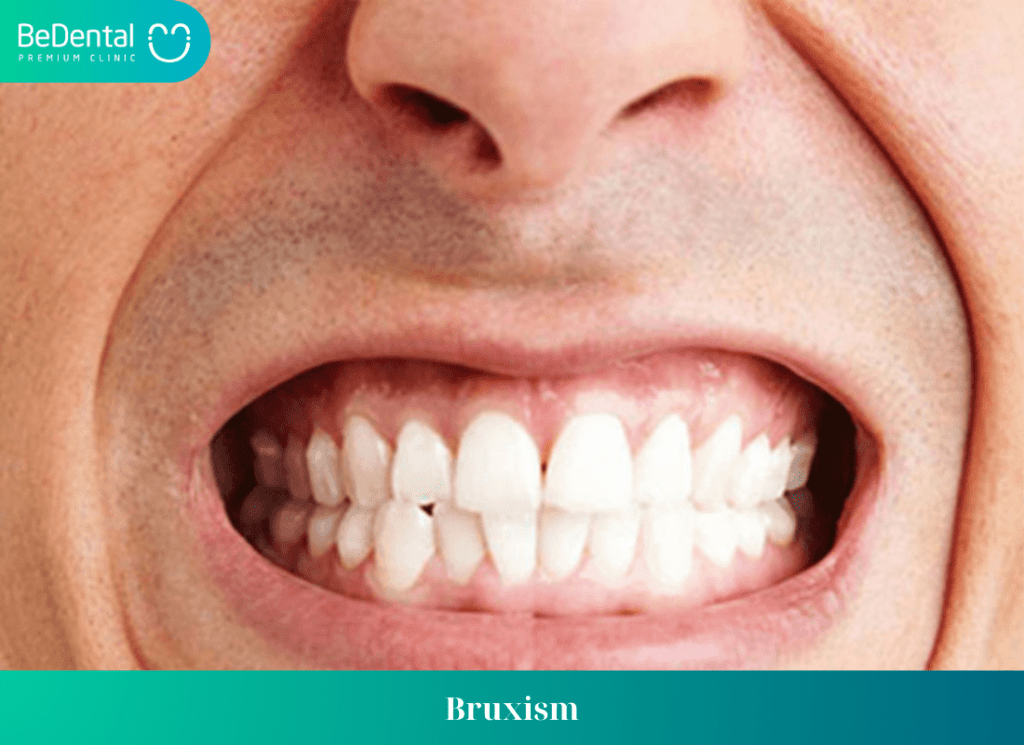
If you suffer from bruxism, you should consult a doctor, as they will provide you with tools to protect your teeth and prevent the consequences of this habit. Additionally, you can seek help from a mental health doctor to reduce your stress and anxiety, which will help you effectively address the issue of teeth grinding.
High-sugar diet
During the summer, many people tend to consume more carbonated foods and drinks, such as soda, and baked goods at picnics, outdoor parties, and other community gatherings.
Consuming foods high in sugar can be an opportunity for oral bacteria to attack your teeth, leading to tooth decay and sensitivity.
See more: What is Zirconia Dental Crown?
Poor oral hygiene
Changes in habits or increased activity in the summer can also lead to inconsistent oral hygiene habits. For example, brushing less frequently or not using dental floss regularly.
Poor oral hygiene can lead to the accumulation of plaque and bacteria on teeth, causing tooth decay, gum inflammation, and tooth sensitivity.
List of ways to treat toothache
Using medication to treat toothache
Pain relievers can be helpful in soothing toothaches that disrupt a patient’s sleep. Additionally, pain-relieving patches or numbing gels can have a similar effect. However, when using pain medication, it is important to note:
- Children under 18 are not allowed to self-administer medication.
- Medication for infants or young children under 2 years old must be approved by a pediatric specialist before use.
See more: Do braces hurt?
Keeping the head elevated is a way to treat tooth sensitivity
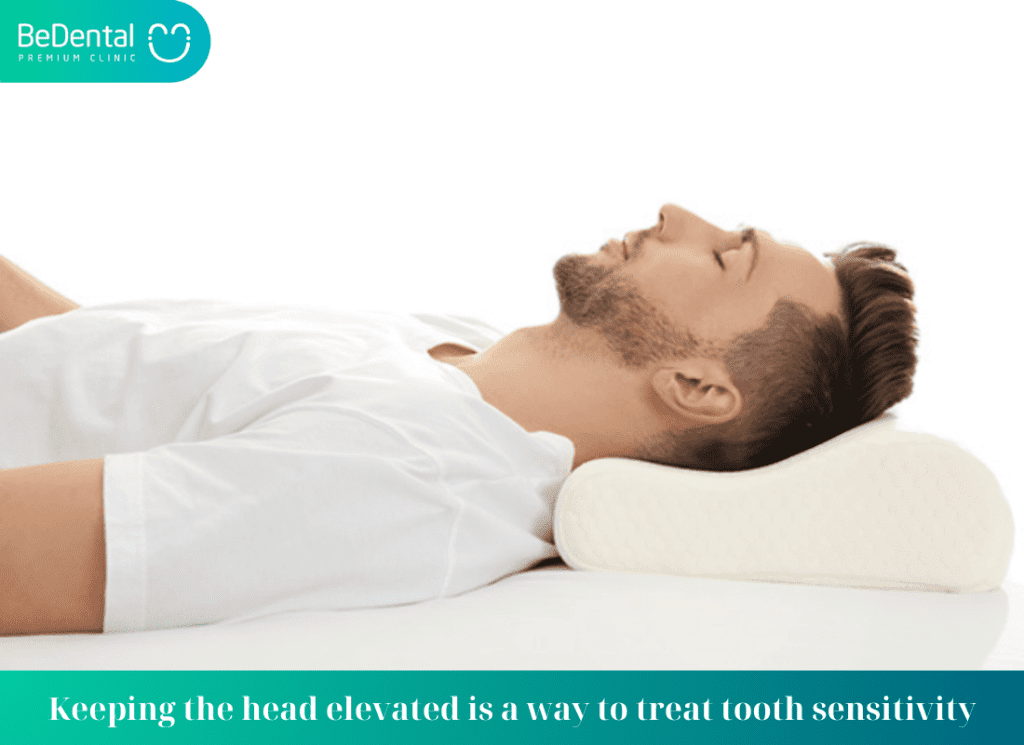
If toothache is “rampant” at night and makes the patient unable to sleep, dentists advise keeping the head elevated higher than the body when lying down. This method works by restricting blood flow to the oral and dental area, thus preventing the toothache from becoming more severe.
Avoid eating cold, hard foods before going to bed
Foods that are cold, hard, and high in acid are on the restricted list of foods to eat before bedtime. Because these types of foods can worsen the oral health condition and any existing cavities.
Therefore, many experts recommend that if you have a toothache, try not to eat hard, cold, and acidic foods (salty, spicy…) even if you brush your teeth thoroughly before going to bed.
See more: What is a misaligned bite?
Maintain oral hygiene to treat tooth sensitivity
In addition to regular dental check-ups every day, people with toothaches should pay attention to using dental floss to clean between teeth and remove any food particles left behind. Additionally, using alcohol-containing mouthwashes to disinfect the oral cavity easily. This will help alleviate some of the uncomfortable toothaches.
Treating tooth sensitivity by applying ice before bed
Another home remedy for toothaches at night that many people use is applying cold compresses before bed. Those with toothaches can use a clean cloth wrapped around a few ice cubes and apply directly to the swollen area of the cheek to minimize toothache.
Treating toothaches with herbal remedies
For a long time, researchers in traditional medicine have used herbal remedies to naturally and effectively treat toothaches and tooth sensitivity. This method can also be applied to cases of toothaches at night.
Some herbal remedies proven to have “miraculous” toothache-relieving effects include:
- Garlic, guava leaves: crush or grind a few cloves of garlic and guava leaves, mix with a little salt and apply to the painful tooth area to effectively reduce pain.
- Peppermint tea: rinse with dried peppermint leaf water mixed with boiling water before going to bed to kill bacteria, reduce toothache, and bad breath very effectively.
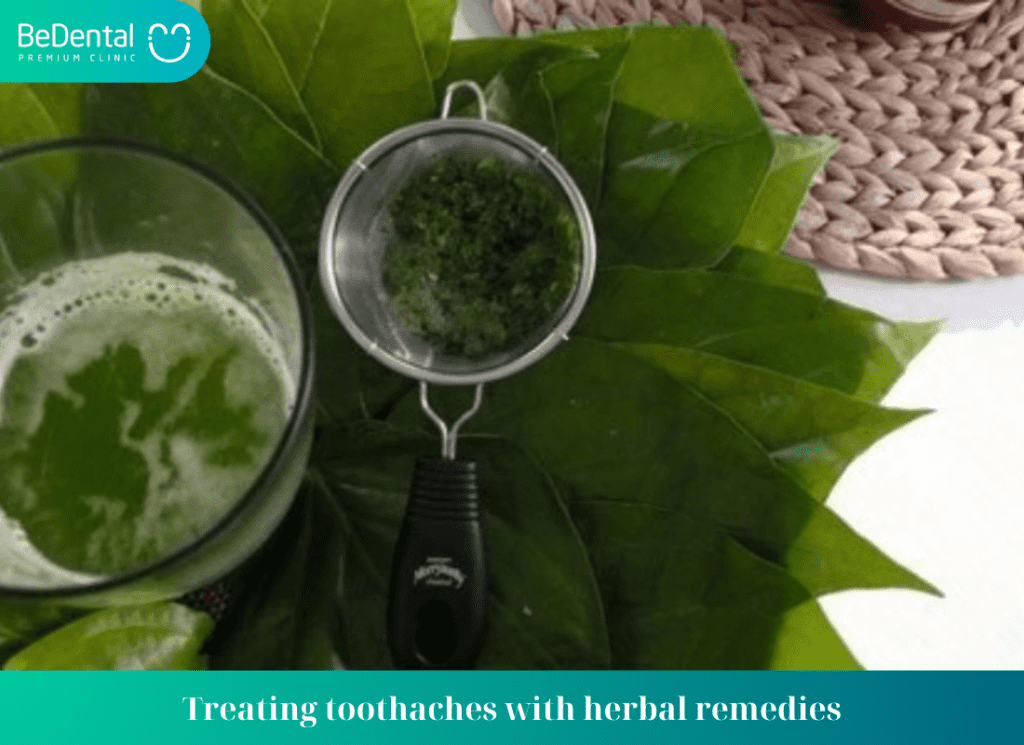
- Mango peel: Boil mango peel with water, let it cool and mix with white wine to gargle every night when experiencing toothache.
- Cajuput oil: With antibacterial properties and effective pain relief for teeth, gargle with cajuput oil for 5-10 minutes, do not swallow. Then rinse the mouth several times with clean water.
- Betel leaf: Those with toothache should crush cleaned betel leaves with salt and white wine, then filter the water to rinse the mouth before going to bed. After only 2-3 days, the toothache at night will significantly decrease.
Above are highly effective ways to treat toothaches and tooth sensitivity at night that do not require much time and cost. However, these methods may not be completely effective as it depends on the individual’s body.
Patients should apply these methods for 4-5 days. If the pain persists and additional symptoms such as headache when speaking, high body temperature, and difficulty breathing or swallowing occur, it is necessary to visit a dentist for examination.
Using hydrogen peroxide
Hydrogen peroxide mouthwash is an effective antibacterial mouthwash. According to many studies, rinsing with hydrogen peroxide mouthwash can be effective when you have tooth pain due to infection. Hydrogen peroxide mouthwash should be diluted in a 1:1 ratio between 3% hydrogen peroxide solution and water.
See more: How to attach gems to teeth?
You should rinse with hydrogen peroxide mouthwash for about 30 seconds. Then spit out the foam and rinse your mouth several times with regular water.
Be aware that hydrogen peroxide solution is highly toxic if accidentally inhaled. Therefore, be careful when rinsing your mouth. Also, due to this reason, rinsing with hydrogen peroxide solution is not recommended as a home remedy for children’s toothaches.
Treatment steps for toothache when visiting the dentist
Usually, pain relief methods at the dentist’s office may not be enough if the pain persists. In emergency situations, you should see a dentist for advice on appropriate treatment before the condition worsens.
- First, the dentist will record symptoms and signs. The dentist will ask you some questions about your toothache, including: Where does it hurt, since when, is the pain severe, what can alleviate the pain?
- Next, the dentist will conduct a clinical examination: Evaluate the condition of the teeth, gums, lips, cheeks, jaw sinuses, nose, sinuses, ears, and throat.
- X-ray: X-rays help determine the condition of the teeth and may detect factors causing toothache.



